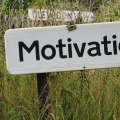The One-Year, Alternative Graduate School Program

What if learning wasn’t confined to a rigid program in a university? What if you could begin learning now, without going back to school?
The One-Year, Alternative Graduate School Program was one of the more popular parts of the original AONC book, in the same chapter where I compared the value of my graduate school degree to my career as an independent writer. I’ve since heard from a number of “students” of all ages who implemented this practice in a variety of forms.
The point isn’t to disparage traditional education, but to provide an alternative for different kinds of learning. You never have to put off learning, and higher education isn’t the only option.
***
The One-Year, Self-Directed, Alternative Graduate School Experience
- Subscribe to the Economist and read every issue religiously. Cost: $97 + 60 minutes each week.
- Memorize the names of every country, world capital, and current president or prime minister in the world. Cost: $0 + 3-4 hours once.
- Buy a Round-the-World plane ticket or use Frequent Flyer Miles to travel to several major world regions, including somewhere in Africa and somewhere in Asia. Cost: variable, but plan on $4,000.
- Read the basic texts of the major world religions: the Torah, the New Testament, the Koran, and the teachings of Buddha. Visit a church, a mosque, a synagogue, and a temple. Cost: Materials can be obtained free online or in the mail—or for less than $50 + 20 hours.
- Subscribe to a language-learning podcast and listen to each 20-minute episode five times a week for the entire year. Attend a local language club once a week to practice. Cost: $0 + 87 hours.
- Loan money to an entrepreneur through Kiva.org and arrange to visit him or her while you’re abroad. Cost: Likely $0 in the end, since 98% of loans are repaid.
- Acquire at least three new skills during your year. Suggestions: photography, skydiving, computer programming, martial arts. The key is not to become an expert in any of them, but to become functionally proficient. Cost: Variable, but each skill is probably less than three credits of tuition would cost at a university.
- Read at least 30 non-fiction books and 20 classic novels. Cost: approximately $750 (can be reduced or eliminated by using the library).
- Join a gym or health club to keep fit during your rigorous independent studies. (Most universities include access to their fitness centers with the purchase of $32,000 in tuition, so you’ll need to pay for this on your own otherwise.) Cost: $25-75 a month.
- Become comfortable with basic presentation and public speaking skills. Join your local Toastmasters club to get constructive, structured help that is beginner-friendly. Cost: $25 + 2 hours a week for 10 weeks.
- Start a blog, create a basic posting schedule, and stick with it for the entire year. You can get a free blog at WordPress.org. One tip: don’t try to write every day. Set a weekly or bi-weekly schedule for a while, and if you’re still enjoying it after three months, pick up the pace. Cost: $0.
- Set your home page to https://en.wikipedia.org/wiki/Special:Random . Over the next year, every time you open your browser, you’ll see a different, random Wikipedia page. Read it. Cost: $0.
- Learn to write by listening to the Grammar Girl podcast and buying Bird by Bird by Anne Lamott. Cost: $0 for Grammar Girl, $14 for Anne Lamott.
- Instead of reading the entire Encyclopedia Britannica, read The Know It All by A.J. Jacobs, a good summary. Cost: $15.
TOTAL COST: $10,000 or less
*The total cost of the self-directed, alternative graduate school program does not include housing or food, but neither does the tuition for traditional school programs in the U.S. and Canada. Freedom and independence, however, are included at no extra charge.
***
By following the alternative graduate school program, you’ll gain the rough equivalent of what tens of thousands of other students regularly spend tens of thousands of dollars on. In return, you’ll have gained approximately the same amount of knowledge (if not more) you’d receive in a general social science or humanities program.
Naturally, if your field of interest varies, the program can be suitably modified. If you love literature, read one-hundred books instead of fifty. If you’re interested in computer programming, learn more than just how to blog.
Now that universities are listing course materials online, in some cases you can even go through the same courses that paying students do. Download the syllabi for the courses you’re interested in and listen to podcasts by professors.
###
Excerpted from The Art of Non-Conformity, available on Amazon.com or your local bookseller.
Image: Roig







